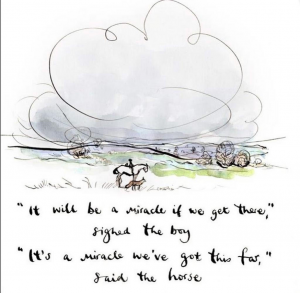Managing pandemic fatigue and possible burnout

(Pic credit: Charlie Mackesy)
It’s been over a year since the World Health Organisation declared Covid-19 a global pandemic. Today (26 March 2021) will be exactly one year since South Africa entered lockdown for the first time. Right now, we’re just over half way through the first term of 2021 and a lot of people I’m interacting with have energy levels of Term 4 – exhausted, and feeling like the boy above.
Pandemic fatigue became a hot topic towards the end of last year. Pandemic fatigue is understood as the exhaustion of spending months of extra time and energy dealing with the new pandemic lifestyle and its accompanying struggles. More so, it is linked to motivation and refers to a state of feeling demotivated to keep up with the expected regulations. We were all amped to see the end of 2020 and here we sit three months into 2021 and nothing has materially changed significantly. We’ve been taken on a roller coaster by the ups and downs of the pandemic dragging on and we’re not getting off just yet. We are worn out. That demotivation is no longer just about wearing masks and social distancing – it’s filtering through to our daily tasks and our work spaces. That fatigue is turning into burnout.
When we talk about burnout, by definition we’re talking about being too stressed for too long. Physical and emotional symptoms of burnout include exhaustion, feelings of depletion, feelings of failure and helplessness, increased feelings of negativity, and difficulty getting tasks done. A UK psychologist who does research in extreme environments (following disasters) talks about ‘psychological hibernation’, which is the same as burnout, but paints a good picture of what lockdown has caused – presenting the idea of a shutdown of functioning. It’s difficult to concentrate, it’s harder to pay attention, sleep cycles become messed up, and our memory stops working like it should. And because we’re exhausted, we’re less motivated to do anything about our negativity and so begins the vicious cycle of being on edge.
Life during the pandemic is overflowing with tasks requiring mental effort. But normal life demands haven’t stopped. We are constantly adjusting to new rules and policies, and at the same time expected to maintain the same responsibilities and level of productivity. Everything we know is different. You might be finding yourself unusually overwhelmed with workload; that under normal circumstances may have felt manageable. The lack of motivation coupled with the building pressure makes us feel like we’re falling behind or not keeping up – and so the vicious cycle goes round.
The good news is that people can come out of this situation stronger! That same UK psychologist notes that where people have survived disasters the vast majority return to their baseline function or even exhibit post-traumatic growth.
So, what can you do to manage your pandemic fatigue and possible burnout?
- Adjust expectations as needed. This doesn’t mean accepting sub-standard results. It means reminding yourself that you are working under a lot of stress and you need to make sure that you are maintaining realistic expectations of yourself.
- Try to have and communicate an optimistic and hopeful outlook. Being realistic also means keeping the possibility of getting through this on the table.
- Prioritise conversations about mental health and self-care. The pandemic has in itself encouraged, or maybe in some spaces even forced, this out of us. Focusing on your baseline health behaviours (particularly sleep) is so important to keep you grounded. Speaking out about what you’re going through is also a way of helping yourself as well as other people.
- Fight isolation. Map out your social resources. – family, teachers, and peers – and make a point of reaching out to them and taking steps to not be alone and deal with everything yourself. Accept support from others.
- Don’t internalise burnout as failure. Burnout is a consequence of a system. We’re not playing the blame game. We’re acknowledging that the world is currently putting excessive pressure on us and expecting levels of sacrifice from us that could be going beyond our mental capacity.
We’ve endured a lot. We are starting to enjoy things slowly returning to some kind of normalcy but a lot does still seem far off. Keep your heads up, College. Listen to the horse above. We’re doing so well.
Mrs Griffiths

